This blog post is part of the Frozen Friday Series, an A-Z journey of the Polar Archives. Each week, we will feature some aspect of the history of polar exploration with a blog post written by our student authors.
A life in the Antarctic is a life most difficult. Penguins spend every moment of their lives fighting the conditions, beating the worst nature can throw at them, all with the singular purpose of surviving just long enough to successfully produce the next generation. That generation, in turn, does the same. Penguins and other Antarctic animals have not one moment to spare.
Humans, on the other hand, developed the ability to create tools that allow ourselves to adapt to even the harshest of environments, including the mighty Antarctic realm. As humans developed more and more tools, free time became more and more abundant. Even as polar explorers worked on difficult, tedious, and vital tasks necessary to survive in the freezing conditions of Antarctica, there was down time as well. Relaxation time is considered critical to the functioning of humans; something to do to unwind and feel the familiar feelings of the warmer climate back home.
That is where our friend, Richard Konter, or, as another Richard would know him, ‘Ukulele Dick,’ comes in. Konter was primarily a crewman on several of Admiral Byrd’s expeditions, but also happened to play the ukulele. Admiral Byrd, Roald Amundsen, Calvin Coolidge, Thomas Edison, and many other contemporary celebrities would sign this ukulele by the end of Konter’s life. [1] Konter used his musical skill to do his best to entertain his fellow crewmembers, playing into the larger history of Antarctic entertainment practices.
Unlike most entertainment industries, this one focuses on a small audience, yet it serves perhaps the greatest non-life-sustaining role in the lives of said audience. Boredom is known to drive men mad, or, at best, cause them to make mistakes. The men and women who dare brave the Antarctic winds and freezing temperatures have taken many strategies to combat the isolating conditions they face. As might be expected, card games, darts, and books are staples of Antarctic life.[2] Of course, not all expeditions have been so fortunate to even have a single book. Gunnar Andersson of the Swedish Antarctic Expedition (1901-1904) remarked that, in the absence of any books, the crew began to recount literature that they had read previously.[3] That was, of course, after they grew weary of reading the labels of their food containers.[4] Crew cabins could become something of a salon, where men would gather around and discuss the great issues of the day. Dr. James Hunter Harvey Pirie of the Scottish National Antarctic Expedition (1902-1904) wrote that the crew would sit near the stove and discuss such topics as evolution, the “Irish Question,” art, and even socialism.[5] These sorts of activities, while fulfilling the need for some kind of entertainment, also created further bonding and camaraderie among the crewmembers. Demonstrating this community building was the ‘Fourth of July Talent Quest,’ a kind of talent show put on by the men of Admiral Richard Byrd’s First Antarctic Expedition (1928-1930).[6] The show featured a variety of acts, including a musical comedy made up of crew in costume.[7] Four men dressed in drag for the act, while three others donned blackface, a practice which was considered acceptable at the time*.[8]
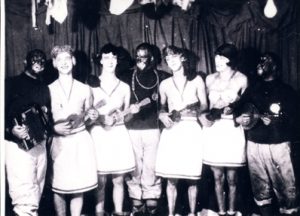
The chorus “girls” of the Antarctic Follies. Left to
right: Jack O’Brien, Freddie Crockett, Eddie
Goodale, Norman Vaughan, Ken Bubier, Jim Feury
and Pete Demas
Byrd’s expedition even had a singing and instrumental group known as the Knights of the Grey Underwear.[9] The Stuart D. Paine Papers at the Byrd Polar and Climate Research Center Archival Program contains issues of “The Barrier Bull,” a “noncontroversial, nonpolitical, and nonsensical” magazine published and written by the men of Little America. The BPCRCAP also has in its vaults images of Byrd putting records on the turntable for his men, as well as evidence of a movie night. Of course, alcohol was also a common pastime, although there is a great discussion among polar historians as to whether the drinking reached problematic levels. These sort of activities gave the crew some semblance of the norm, allowing them to feel, at least for a moment, that they were not on the loneliest continent.
Conditions for modern Antarctic explorers have improved since the very first trips to the continent. Even in the 1970s, just four decades after Admiral Byrd’s historic flight over the South Pole, the Amundsen-Scott South Pole Station was complete with a station store that offered such items as beverages (both alcoholic and not), tobacco, toiletries, candies, and even tourist items. Modern explorers often have the luxury of a well-stocked library and have been known to even play golf out on the frozen terrain.[10]
As time has gone on and expeditions gain more advantages in funding and technology, they have become equipped with greater numbers of resources to keep the crews entertained. The earliest explorers relied on each other’s company and, to some degree, this has not changed. Group activities remain essential to the wellbeing of not only individual crewmembers, but also the very expedition itself.
*As archivists, we hold and protect historical materials to insure that they are available to the public. Regardless of today’s cultural expectations, the archivist’s job is to provide primary sources for research and education and to encourage discussion about events of the past.
Written by John Hooton.
[1] “The Konter Ukulele,” The Smithsonian Museum Conservation Institute Imaging Studio, accessed January 23, 2017. https://si.edu/MCIImagingStudio/KonterUke
[2] Antarctica, 2nd ed., s.v. “Passing the Time.” (Surry Hills: Reader’s Digest, 1990).
[3] Antarctica, “Passing the Time.”
[4] Antarctica, “Passing the Time.”
[5] Antarctica, “Passing the Time.”
[6] Antarctica, 2nd ed., s.v. “Conquest by Air.” (Surry Hills: Reader’s Digest, 1990).
[7] Antarctica, “Conquest by Air.”
[8] Antarctica, “Conquest by Air.”
[9] Lisle A. Rose, Explorer (Missouri: University of Missouri Press, 2008), 351.
[10] Antarctica, “Passing the Time.”


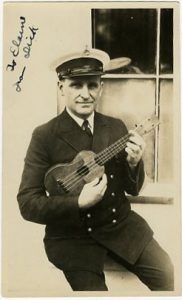
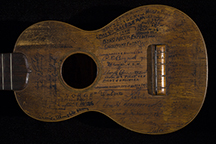
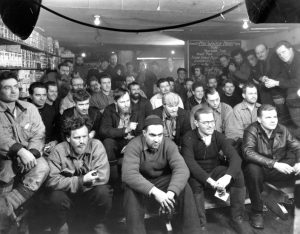
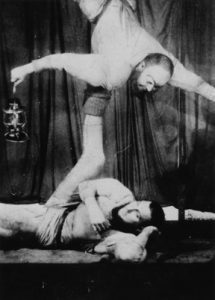
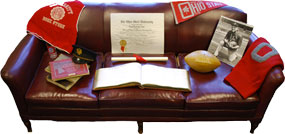
Recent Comments